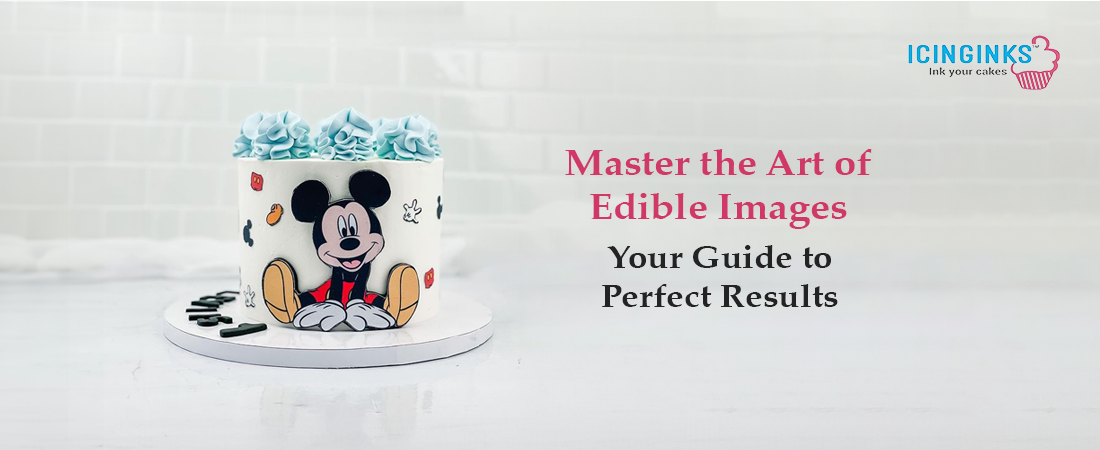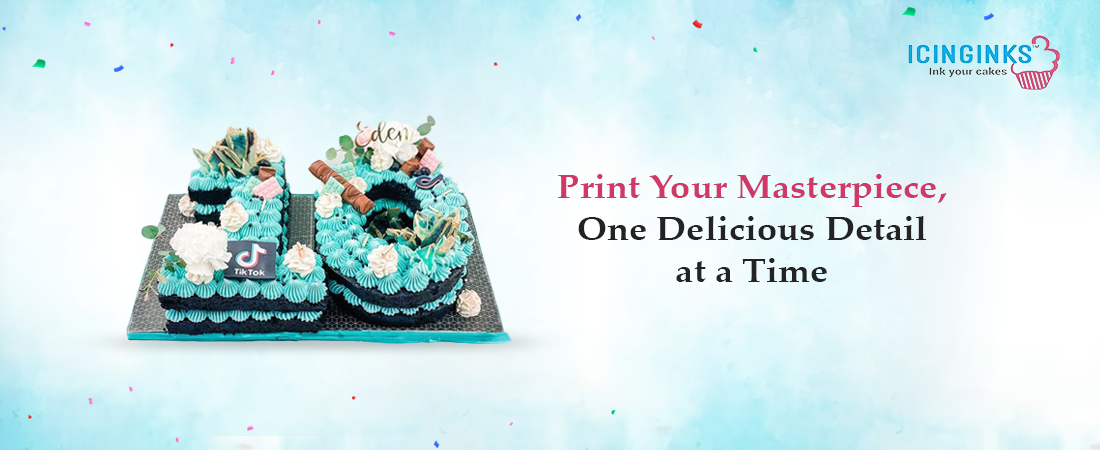
Imagine transforming a simple cake into a masterpiece! An Edible image allows you to achieve just that. These vibrant, edible creations add a personalized touch to any dessert, making them perfect for birthdays, graduations, weddings, or any occasion that deserves a little extra wow factor. But how do you ensure your edible images translate from screen to cake flawlessly? This guide will take you through everything you need to know about preparing, storing, and using edible images for stunning results.
What Are Edible Images?
Edible images are thin sheets, typically made from frosting sheets, wafer paper, or rice paper, printed with edible ink. These specially formulated inks are made from food colorings and other edible ingredients, ensuring they're safe for consumption. With edible images, you can add photographs, logos, intricate designs, or even custom messages directly onto your cakes.
Choosing the Right Edible Image
The first step to success is selecting the perfect edible image for your cake. Consider the theme, recipient's personality, and overall cake design. Here are some factors to keep in mind:
Image Size
Ensure your chosen image is the right size for your cake. Most edible image printing services offer various sizes, so choose one that fits comfortably on your cake's surface.
Image Quality
Use a high-resolution image for optimal printing results. Blurry or pixelated images will translate poorly onto the edible sheet.
Copyright
Consider copyright restrictions, especially if you're using licensed characters or trademarks.
Finding an Edible Image Printing Service
Several online and local bakeries offer edible image printing services. Research reputable companies that use high-quality edible inks and food-safe materials. Many services allow you to upload images or choose from a pre-designed library.
Preparing Your Cake for the Edible Image
Once you have your edible image, it's time to prepare your cake. Here are some key steps:
Frosting
Use a smooth and even layer of frosting as your edible image's canvas. Buttercream frosting works best, providing a sturdy base and blending seamlessly with the image. Avoid using wet frostings that can cause the image to bleed or become soggy.
Chilled Cake
Ensure your cake is chilled before applying the edible image. A cold cake helps prevent the frosting from melting and allows for easier placement.
Applying the Edible Image
Gently Peel
Carefully peel the edible image from its backing sheet. Most edible images are pre-cut; if not, use clean scissors to trim any excess edges.
Positioning
Plan your placement. Lift the edible image and gently drape it onto the frosted cake. Use a light touch to avoid tearing the sheet.
Smoothing Out
Once positioned, use a rolling pin or a flat spatula to gently smooth out any air bubbles trapped underneath the edible image.
Storing Edible Images
Store your unused edible images in a cool, dry place away from direct sunlight. Most reputable printing services provide sealed packaging that helps maintain freshness. Ideally, use edible images within a few weeks for optimal results.
Troubleshooting Common Issues
Here are some common problems you might encounter with edible images and how to address them:
Curling Edges
If the edible image starts curling at the edges, gently press them down with a rolling pin or a flat spatula. Chilled cakes help prevent this issue.
Tearing
If the edible image tears slightly, don't panic! Carefully maneuver the torn piece into place and use a small amount of buttercream frosting to "glue" it back together. Minor imperfections will likely go unnoticed on the final cake.
Creative Applications of Edible Images
Edible images are not just for cakes! Explore these additional ways to add a touch of personalization to your desserts:
Cupcakes
Use mini edible images for a delightful surprise on top of cupcakes.
Cookies
Decorate cookies with small edible images for a fun and festive touch.
Chocolate
Transfer edible images onto chocolate for a unique and elegant presentation.
With some planning and these helpful tips, edible images can take your cakes from ordinary to extraordinary. So, get creative, have fun, and transform your next dessert into edible art!
Bring Your Cakes to Life with Icinginks!

Transform any cake into a masterpiece with Icinginks' custom edible printing service. Upload your favorite photos, logos, or designs, and we'll print them on high-quality edible frosting sheets using vibrant, food-grade inks.
Our service caters to all occasions, from birthdays and graduations to weddings and corporate events. We offer edible images for cakes, cupcakes, cookies, and even chocolate transfers for a truly unique touch.
Looking to take control of your cake creations? Icinginks offers a variety of top-rated edible printer bundles at unbeatable prices. Our packages include everything you need: a brand-new Canon or Epson printer optimized for edible printing, ink cartridges, and optional edible paper.
But what if you don't have design experience? No problem! Icinginks Edible Image Software lets you create, edit, and print gorgeous edible designs online within minutes. This cloud-based software works on Windows and iOS, making it accessible to everyone.
Ready to unleash your inner cake artist? Visit Icinginks today and turn your next dessert into a showstopper!
FAQs
What are the different types of edible images?
Edible images come in various materials, each with its advantages. Frosting sheets, the most common type, offer vibrant colors and blend seamlessly with buttercream frosting. Wafer paper is slightly transparent and ideal for lighter-colored cakes. Rice paper is a good option for vegan cakes as it's starch-based. Chocolate transfer sheets allow you to create stunning designs directly on chocolate.
How long will edible images stay fresh?
When stored properly in a cool, dry place away from direct sunlight, most unopened edible images can last several months. Once opened, it's best to use them within a few weeks for optimal results. Always refer to the manufacturer's recommendations for specific storage times.
Can I reuse edible images?
Unfortunately, no. Edible images are delicate and can tear easily. Additionally, once placed on a cake, the frosting sheet or wafer paper will absorb moisture and become unusable for later applications.
What if my edible image tears slightly?
Don't panic! Minor tears are usually fixable. Use a small amount of buttercream frosting to gently "glue" the torn piece back together. The frosting will blend seamlessly with the image, and the tear will likely go unnoticed on the final cake.
More interesting blogs to read on Icinginks
How Far in Advance can you Apply an Edible Image on a Cake
Icing Sheet or Wafer Paper – Which Edible Paper to Use and When?
What Are The Components, Qualities, and Uses of High-Quality Edible Papers?
Edible Sugar Sheets: An Easy Step-by-Step Guide





